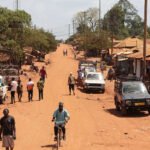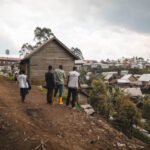African Development Bank (AfDB) has approved two grants of $9.25 million to implement the Africa Disaster Risk Financing (ADRiFi) programme in Malawi.
Malawi has experienced a rise in the frequency, intensity and unpredictability of climate shocks, perpetuating a cycle of food and nutrition insecurity.
The United Nations Sustainable Development Group (UNSDG), in late 2021, noted that the country was susceptible to droughts, dry spells, and flooding, and its agriculture sector is primarily dependent on rainfall.
The southern African country’s agriculture, Development Diaries understands, contributes about 30 percent of Malawi’s GDP and employs about 64 percent of its workforce.
The funding from AfDB is expected to boost the country’s resilience against climate-related shocks and food insecurity.
‘Africa is the world’s region most vulnerable to climate change-related weather extremes like flooding, droughts and tropical cyclones’, the bank’s Vice President for Agriculture, Human and Social Development, Beth Dunford, said in a statement.
‘We welcome Malawi into the Africa Disaster Risk Financing Programme, which boosts participating countries’ ability to respond rapidly to the aftermath of climate-related disasters, arrange finance before shocks and better serve their most vulnerable populations impacted by the effects of climate shocks’.
ADRiFi, according to the bank, will safeguard investments and development gains in Malawi related to five bank agricultural projects, including rebuilding infrastructure.
Grant funds will also go to build the capacity of national agencies that manage disaster risk, the bank added.
Malawi is the ninth country to join the ADRiFi programme. The other participants are Gambia, Mauritania, Niger, Sudan, Madagascar, Mozambique, Zambia and Zimbabwe.
Under the initiative, Madagascar, Mauritania and Niger have already received insurance payouts with a combined value of $17 million. The funds have been used for recovery efforts following drought and tropical cyclones.
ADRiFi is designed to enhance African countries’ ability to evaluate climate-related risks and costs, respond to climate-related disasters and review adaptation measures.
The initiative, it was gathered, also provides initial financing for countries in need of support.
Photo source: CGIAR Research Program on Dryland Systems




